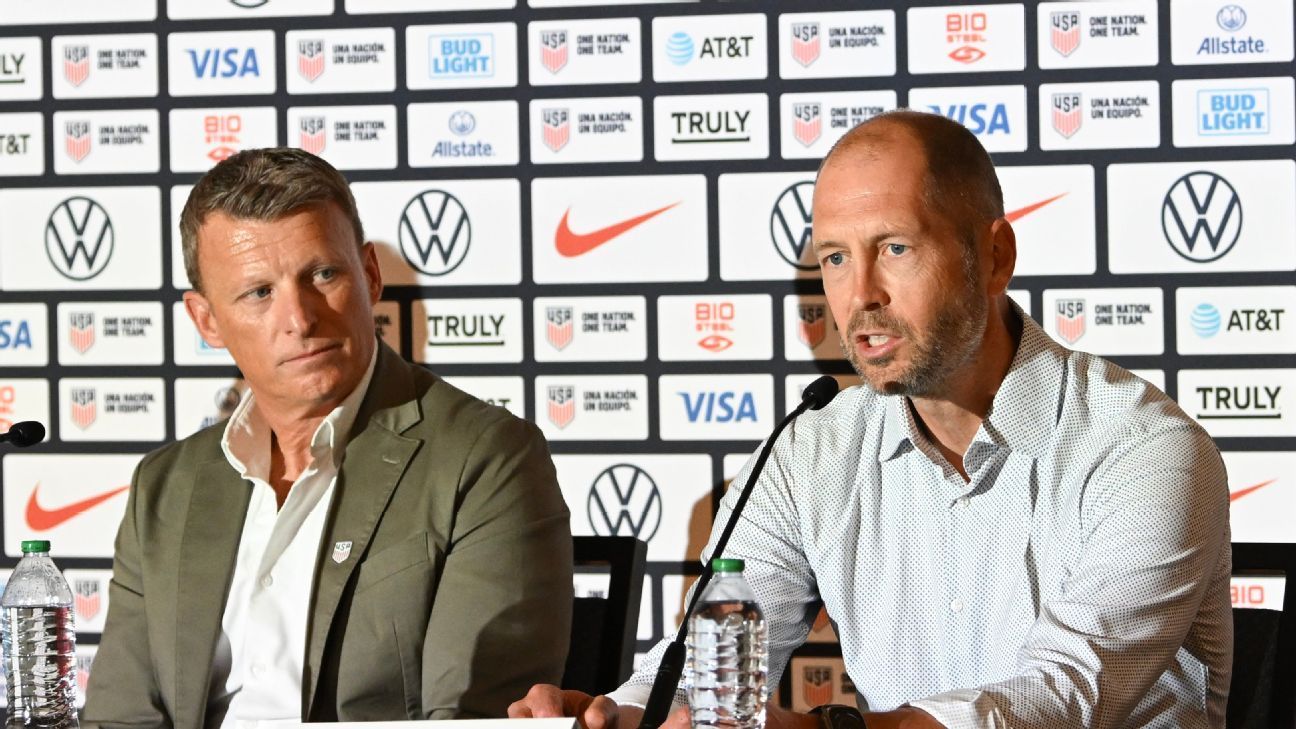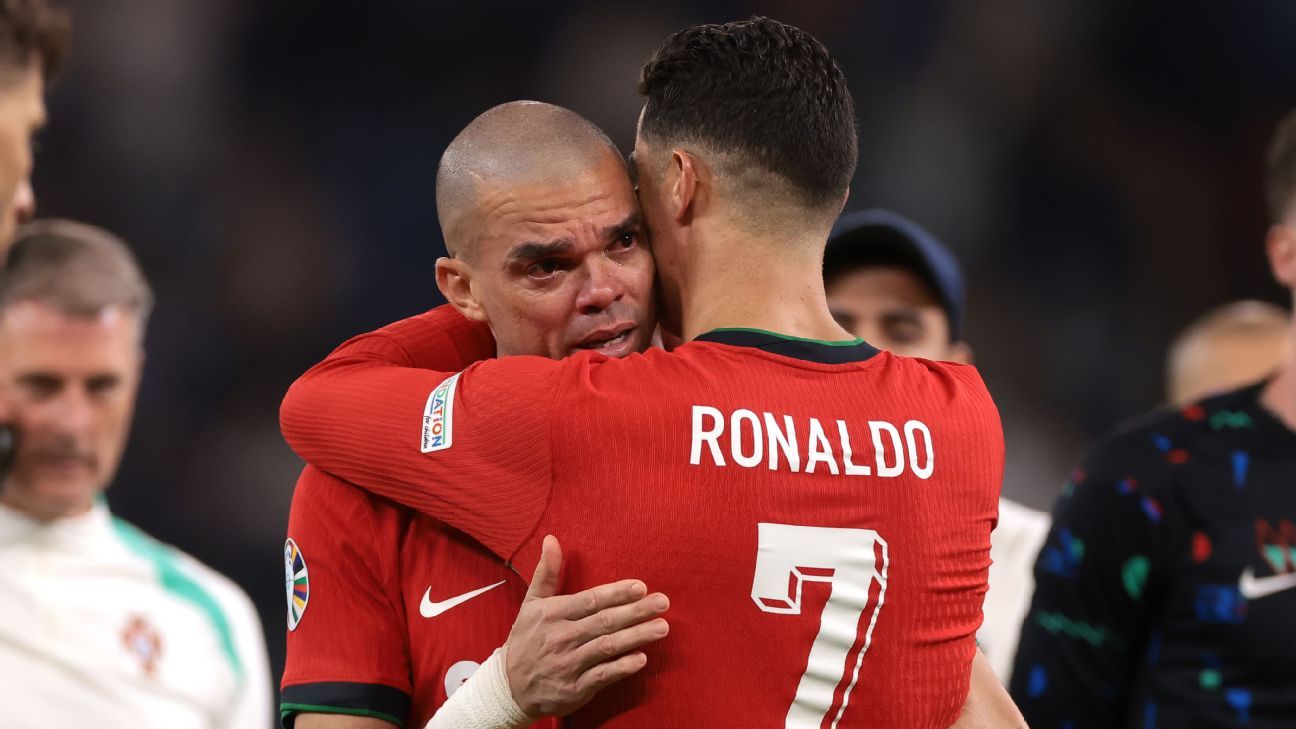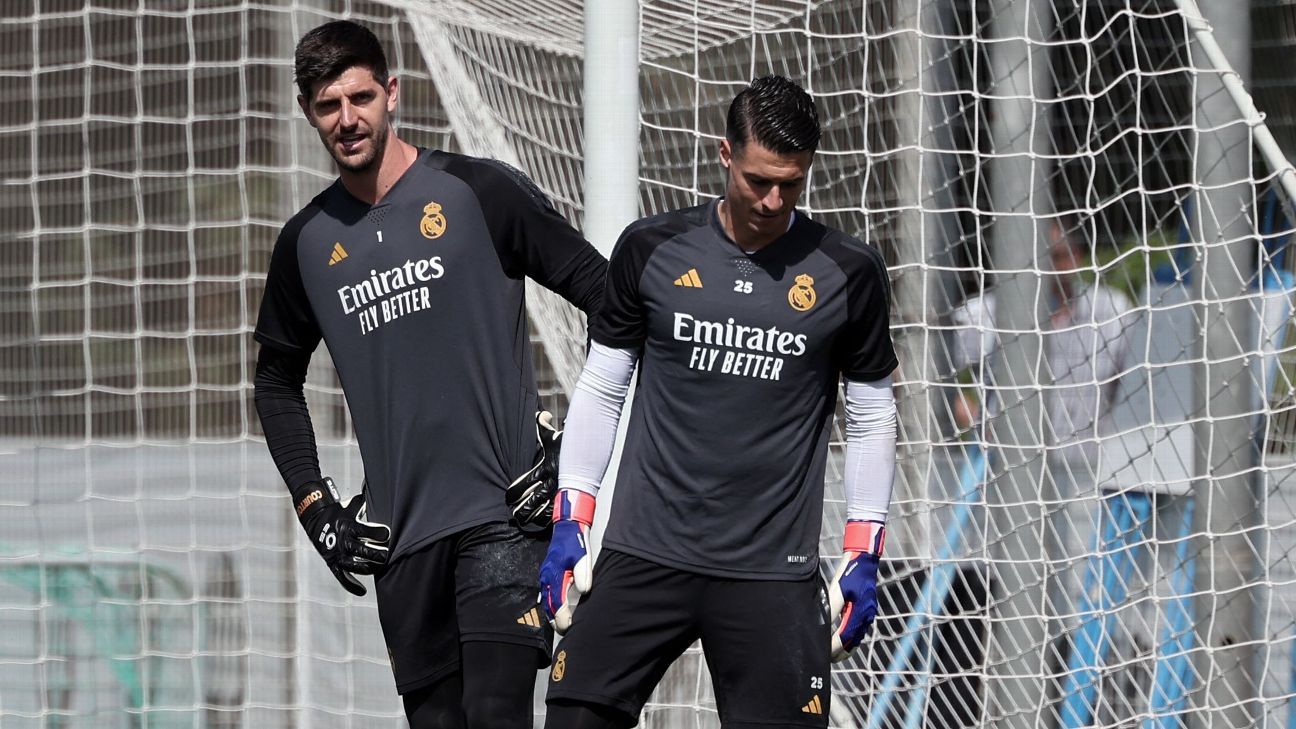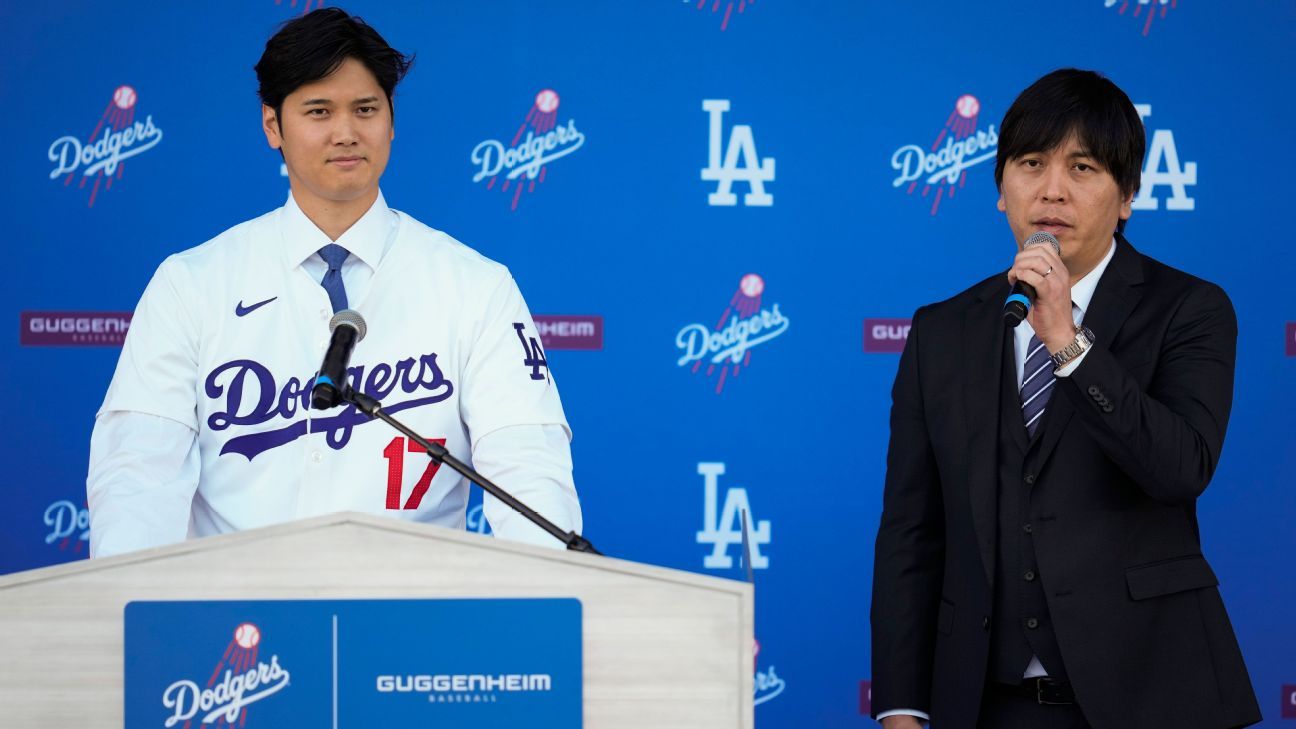During his tenure as coach of the U.S. men's national soccer team, Gregg Berhalter always seemed to do just enough to meet modest expectations but never exceed them in a way that could galvanize the fan base and others interested in the sport.
That kind of performance was enough to keep Berhalter in charge for a while. He was even slated to be rehired after the 2022 World Cup, before the dispute involving U.S. midfielder Gio Reyna and his family came to light. (Instead, Berhalter’s contract expired at the end of that year, before he was named coach again less than six months later.) But when expectations are met — and not exceeded — it limits political capital within U.S. Soccer and goodwill outside it.
So when he suffered a major setback (and failing to make it past the group stage at the Copa America hosted by the United States counts as one of them), Berhalter was left without resources. Now, Berhalter finds himself out of a job.
Berhalter was fired Wednesday, and U.S. Soccer Federation sporting director Matt Crocker said during a conference call with reporters that the decision was his and he did not ask for input from others. That was because, he said, “we had a clear plan and some clear metrics of what success looked like over the last 12 months, but also in the tournament itself. Some of those metrics we fell short of.”
Crocker spoke of the lack of chance creation and goals from set pieces, but also of concerns “around the overall evolution of the group,” which included analyzing not only the Copa America, but also 14 games from the past 12 months.
“That gave me a very solid direction on the direction I think we'll take going forward,” Crocker said.
Berhalter’s firing will be greeted with glee by some segments of the USMNT fan base. Given recent results, Crocker was required to make the decision to fire Berhalter. But this is not a day of celebration for the U.S. Soccer Federation. It lays bare the mistake the federation made in rehiring Berhalter in June 2023 when there were several compelling reasons not to.
Among those reasons are Berhalter's airing of dirty laundry (however thinly veiled) when he told the story of how he nearly sent Reyna home after the World Cup. There's also the domestic violence incident from more than 30 years ago that came to light in an act of retaliation by Reyna's family. And then there's the poor performance record of American coaches when they come back for a second term: The message gets stale and the team stagnates.
But Crocker, with considerable urging from the players, brought Berhalter back last year. Crocker was just two months into the job as U.S. Soccer's head of technical operations when he made the decision, citing a series of tests he put candidates through.
But after Berhalter's return, instead of the team taking the next step up the international ladder, signs of decline appeared in the form of uneven performances against opponents against whom the United States normally has success.
During Wednesday's conference call, Crocker said he wouldn't necessarily change his approach to choosing the next coach, though he feels better prepared to make a decision. Parting ways with U.S. women's national team coach Vlatko Andonovski last year after the team's worst World Cup ever will also help Crocker cope with Berhalter's departure, he said.
“I think I have a lot more clarity and a lot more confidence in what I see,” Crocker said. “And then also, doing the reviews with both Gregg and obviously Vlatko, I have a lot more clarity on what I think we need going forward. I think [I’m] I'm now in a better position to have a much more targeted search, where I'll be more inclined to put in the effort and start early with specific candidates that I think meet the criteria we're looking for.”
Berhalter's tenure was not without its positives. He took over a team that had failed to qualify for the 2018 World Cup and rebuilt it around a core of exciting young players. They won the first three editions of the Concacaf Nations League, although the second triumph came while the U.S. Soccer Federation was evaluating Berhalter's status and with BJ Callaghan managing the team on an interim basis.
At the 2022 World Cup, the United States advanced from a navigable group before losing to a more talented Netherlands team in the Round of 16. While expected, the loss created impatience about when the USMNT was going to secure a resounding victory that would represent a more tangible sign of the team’s progress.
Not only was there no spectacular win, but the U.S. seemed to be regressing since the World Cup, struggling to get results and performing inconsistently. That's the fault of Berhalter and the players, but also of Crocker.
1:11
Moreno: USMNT cut Berhalter two years too late
Alejandro Moreno reacts to Gregg Berhalter's firing as USMNT coach.
Some members of the U.S. Soccer board are already complaining that Crocker should have been fired, too. But it appears that after he botched so badly by re-hiring Berhalter, Crocker won’t have many more chances to hire a USMNT coach — and he needs to strike gold for the 2026 World Cup, which the U.S. is hosting along with Canada and Mexico.
Crocker said she wants to have a coach in place before the September international window, though there is a contingency plan in place if she doesn’t. She’s also not daunted by the money it might cost to get a top-quality coach or the federation’s emphasis on equality. (U.S. women’s national team coach Emma Hayes makes about the same as Berhalter.)
“I know the salary market is very competitive and we have to be competitive to get the level of coaching that I think can move the program forward in terms of achieving the results we need on the field,” he said. “But I'm also very aware that we have to continue to strive for higher standards and equality. I don't think that's going to be a hindrance in terms of our investment; our national team is a priority. It's something we're willing to invest in and something we'll invest in.”
Crocker also said that “communication is key” to getting the message across to players. That would seem to rule out a coach who doesn't speak English. But Crocker said he will be looking to a broad group, both domestically and abroad.
“I just want to get the best coach possible who can help the team win, and whether it's from the United States or anywhere else, he has to fit the profile, which is a serial winning coach, someone who can continue to develop this potential group of players,” he said. “Someone who has a great interest and passion for player development.”
That way, perhaps the USMNT can begin to climb the ranks of international soccer again, rather than fall back.












